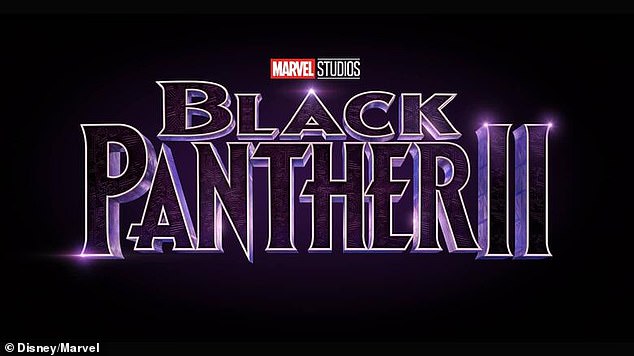Movie: Black Panther: Wakanamda Forever
Year: 2022
Genre: Science fiction
Reviewer: Robert Daniels
Director: Ryan Coogler
Run time: 161 minutes
The center of “Black Panther: Wakanda Forever”—the sequel to the hugely popular “Black Panther,” and a tribute to the late Chadwick Boseman—is sincere, even if the overall film feels manufactured. It begins with a funeral for the recently deceased King T’Challa. Shuri (Letitia Wright) and Queen Ramonda (Angela Bassett) are dressed in white, following the black coffin, whose top features a silver emblem of the Black Panther mask and the crossed arms of the Wakanda salute. Their mournful procession, winding through the kingdom, is contrasted with slow-motion tracking shots of dancers jubilantly dancing in memory of their fallen king. After the coffin arrives at a clearing, where it ceremoniously rises to the sky, we cut to an earnest, emotional montage of Boseman as T’Challa. The solemn, aching continuum of images soon forms the “Marvel Studios” logo, announcing that this is still a Marvel movie. And “Wakanda Forever” is all the worst for it.
What was the secret ingredient for the success of “Black Panther”? Similar to the resplendent, secluded African nation of Wakanda, “Black Panther” existed just outside of the Marvel Cinematic Universe. It mostly stood on its own without the crushing requirements felt by every other film: The humor existed between the characters, not as random references to another property; the characters (with Andy Serkis as Ulysses Klaue as an exception) were particular to the story; the concerns rarely drifted toward franchise building aspirations.
But writer/director Ryan Coogler and his co-writer Joe Robert Cole don’t possess the same kind of freedom with this melancholy sequel. Some limitations aren’t within their control, such as the tragic death of Boseman. Others feel like a capitulation to assimilate into a movie-making machine.
The hulking script is chock-full of ideas and themes. Rather than fighting their common enemy (white colonists), two kingdoms helmed by people of colour are pitted against each other (an idea that never thematically lands), and the film must delve into the cultural pain that still exists from the historical annihilation of Central and South America’s Indigenous kingdoms. It must also contend with a bevy of other requirements: setting up the Marvel TV series “Ironheart” (which Dominique Thorne will star in), acknowledging The Snap, grieving Boseman’s death, and finding a new Black Panther. These competing interests are no less smoothed out by MCU’s blockbuster demands (that this must be a mainstream hit and usher in the next phase of the cinematic universe) and the weight of satiating Black folks who feel seen by the fantastical confirmation of Black regalism. It’s too much for one movie. And you get the sense that this should’ve been two.
At nearly every turn, “Wakanda Forever” fails, starting with its set-up. Colonist countries, now afraid of an African superpower, are scouring the world, from sea to sea, searching for vibranium (the metallic ore that powers the African kingdom). A young scientist named Riri (Thorne, treated as a plucky afterthought) plays a role in a search that leads mercenaries deep underwater where they encounter Namor/Kukulkan (a menacing and bold Tenoch Huerta), the king of Talokan, and his people, who are none too happy with the surface world. In fact, they want to destroy it. The godly Namor, his ears pointed to the sky, his winged feet fluttering, later surfaces in Wakanda. With water still dripping from his jade earrings and glimmering, vibranium-pearl-gold necklace, he approaches a still mournful Ramonda and a bitter Shuri with a threat masquerading as an alliance. His appearance causes Wakanda to turn to Everett Ross (Martin Freeman), which leads to other cameos and subplots that weigh down the entire film with franchise expectations.
What’s imperative to “Black Panther: Wakanda Forever” is the way Coogler centers righteous rage. Ramonda’s first big scene is her admonishing the United Nations for expecting her to share vibranium with the world, even as they try to steal the resource from her nation. Bassett, with a capital-A, acts in a sequence where her voice booms, her gaze is fixed and unforgiving, and the venom is felt. And yet, Shuri, who has buried herself in her lab, developing dangerous weapons, feels worse. She wants to see the world burn. Their shared anger forces a spew of short-sighted decisions that lead to further escalations with Namor—who desperately angles to avenge his mother and his ancestors. The film attempts to position the trio as different stages of grief, but in trying to get viewers up to speed on the atrocities experienced by Namor, it becomes slow and overblown.
Maybe somewhere a way existed to connect these arcs together. But that would require better visual storytelling than the movie offers. Far too often, the dialogue stays on the surface, either by providing reams of exposition, externalizing exactly what’s on the character’s mind, or by trying to meld together the real-life loss felt by the actors with that of the characters. The latter certainly offers these performers a necessary chance to process their hurt on screen, but when did filmmakers forget how to show without telling? Why are contemporary blockbusters so enamored with holding the audience’s hand by providing every minute detail? At one point, after Namor explains his entire backstory, Shuri responds with, “Why are you telling me all of this?” It feels like a note Coogler gave to himself.
The shortcomings in dialogue and story, and how often “Black Panther: Wakanda Forever” bows to IP-driven needs, would be easier to stomach if the visual components weren’t so creaky. The jittery fight sequences are too difficult to follow: inelegant compositions blur into an incomprehensible sludge with every cut by editors Michael P. Shawver, Kelley Dixon, and

 Join Daily Trust WhatsApp Community For Quick Access To News and Happenings Around You.
Join Daily Trust WhatsApp Community For Quick Access To News and Happenings Around You.